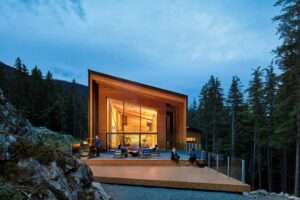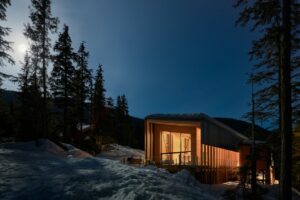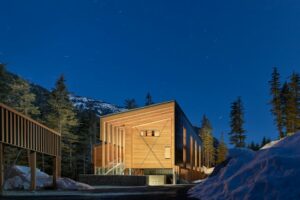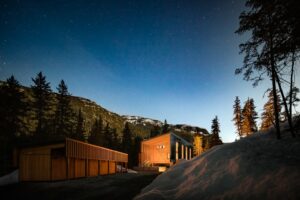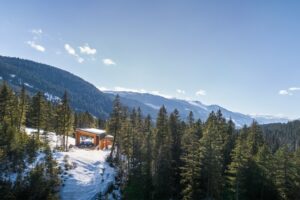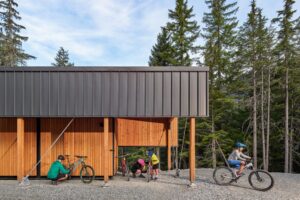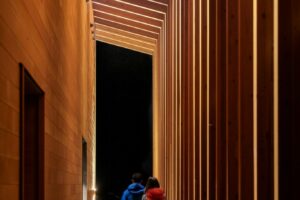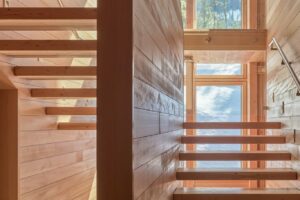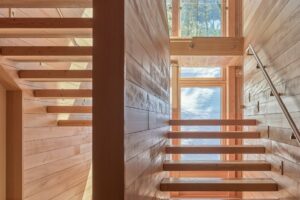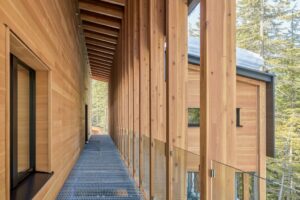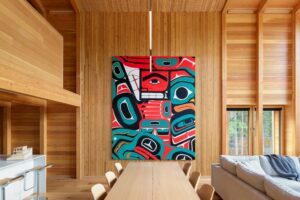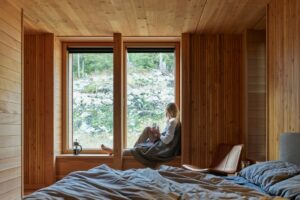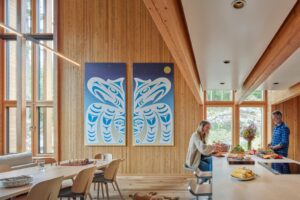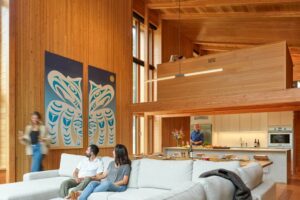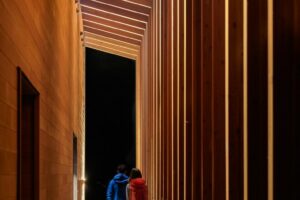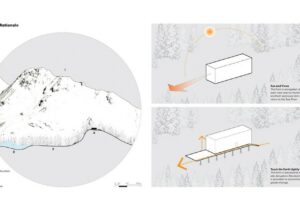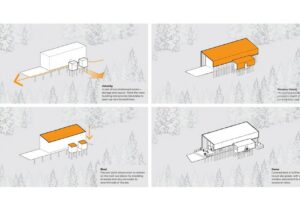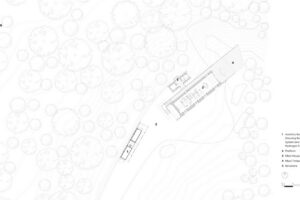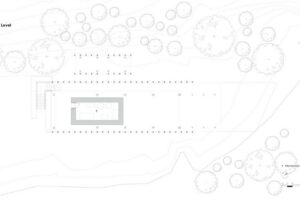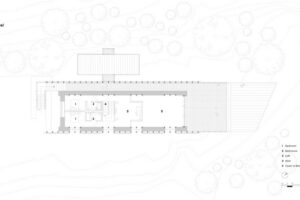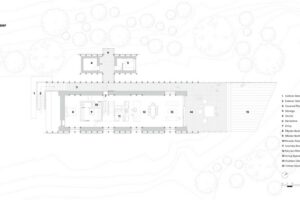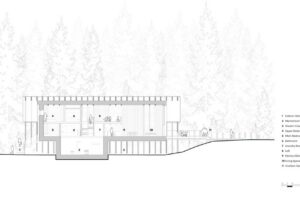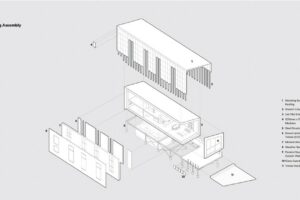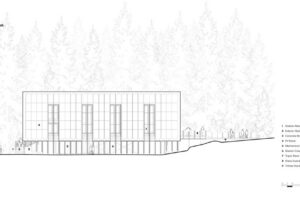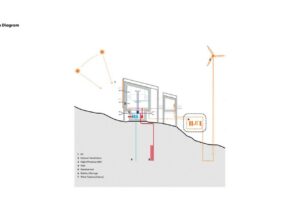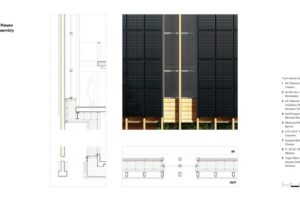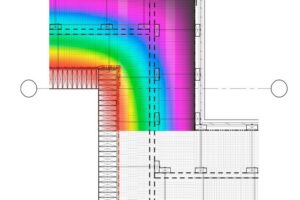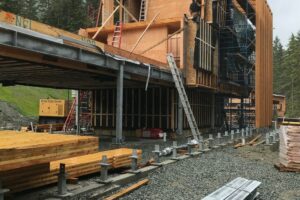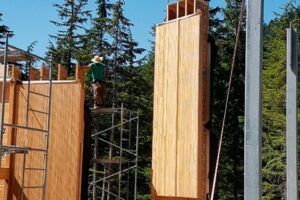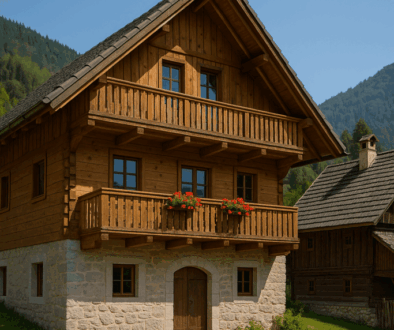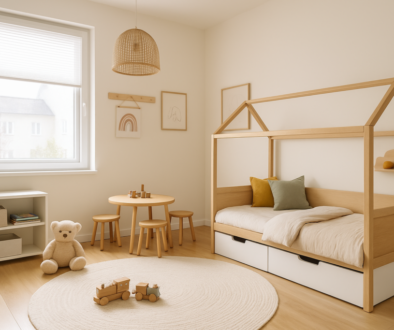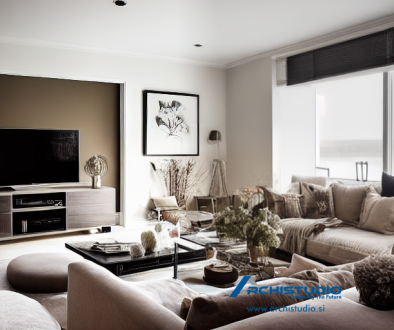SoLo Demonstration House near Vancouver by Perkins&Will
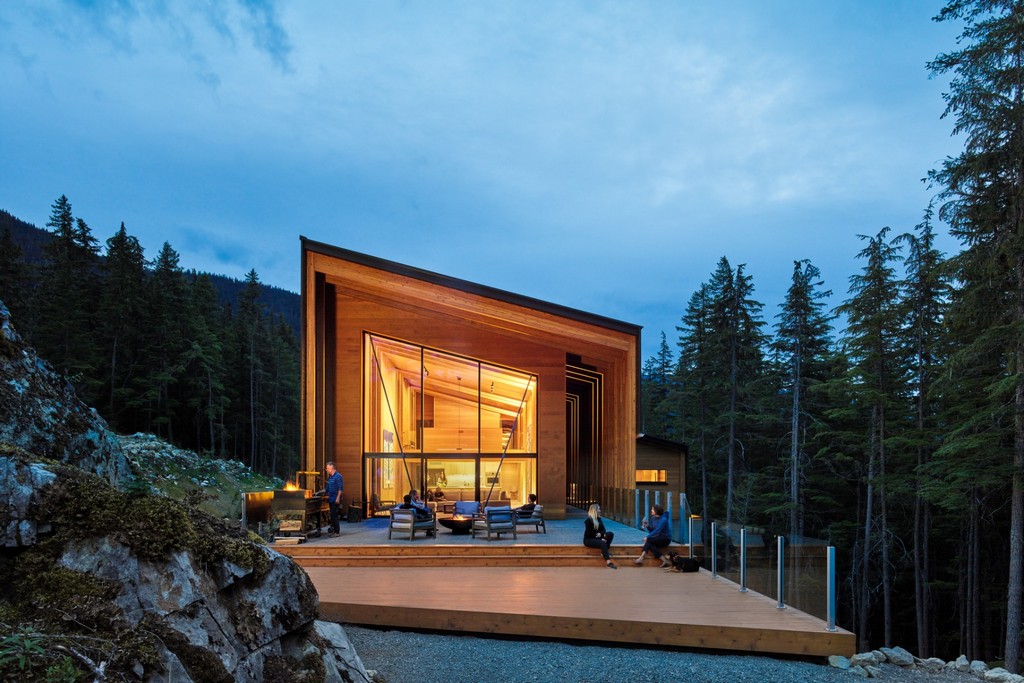
© Andrew Latreille
Architecture: Perkins&Will
Client: Delta Land Development
Location: Soo Valley (CA)
Structural engineering: Glotman Simpson
Building services engineering: Integral Group
Facade planning, building physics: RDH, Perkins&Will
The name says it all: amid the forests near the ski resort of Whistler, Perkins&Will have erected a holiday home on behalf of a property developer. The structure will set new standards for energy efficiency and sustainability. The client, Delta Land Development, states that it would like to test technologies and construction methods that may be used in larger future projects set in the urban environment.
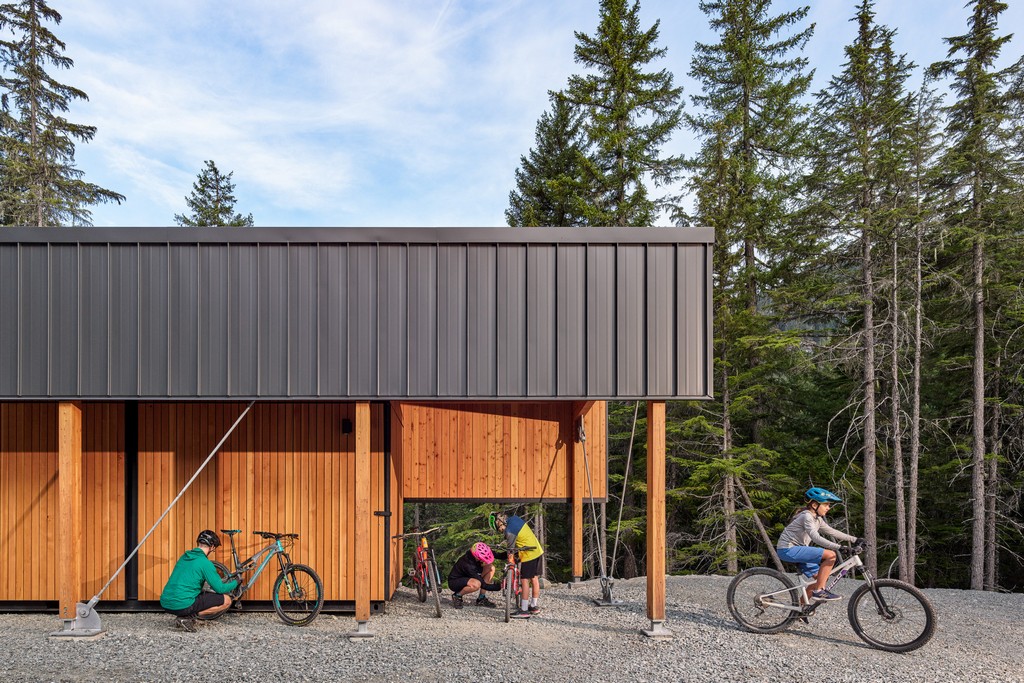
© Andrew Latreille
In terms of scale, SoLo is in a completely different, significantly smaller league. However, for a weekend house the new building is quite impressive: it is nearly 30 m long and measures 380 m². To keep the house from being snowed in, the structure stands conspicuously above ground on a steel framework.
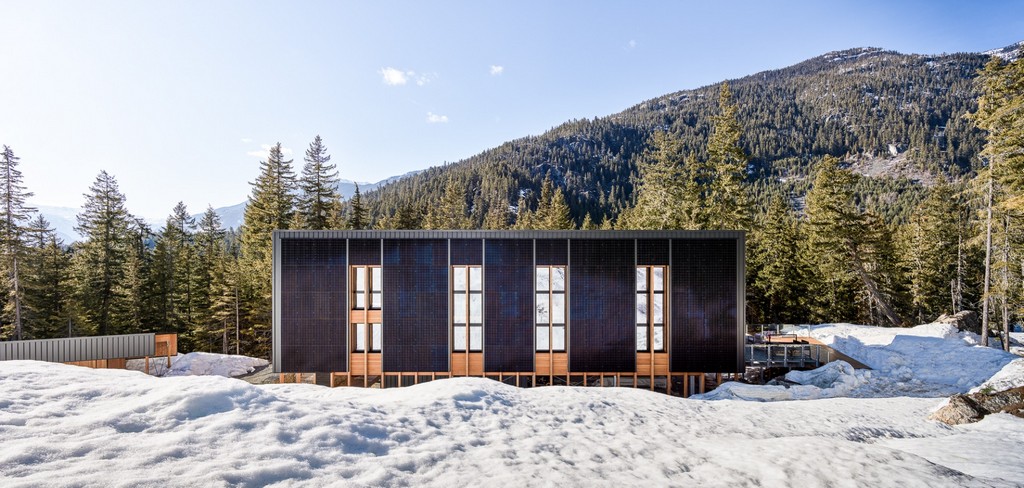
© Andrew Latreille
The (ground-floor) basement accommodates only a technical room for the ventilation system, the geothermal pump that heats the house and the water treatment unit. Because its location is remote, SoLo is self-sufficient with respect to energy and water supply. A well beneath the house provides potable water, while grey water is recycled and waste water passes through a small treatment unit before it seeps into the earth.
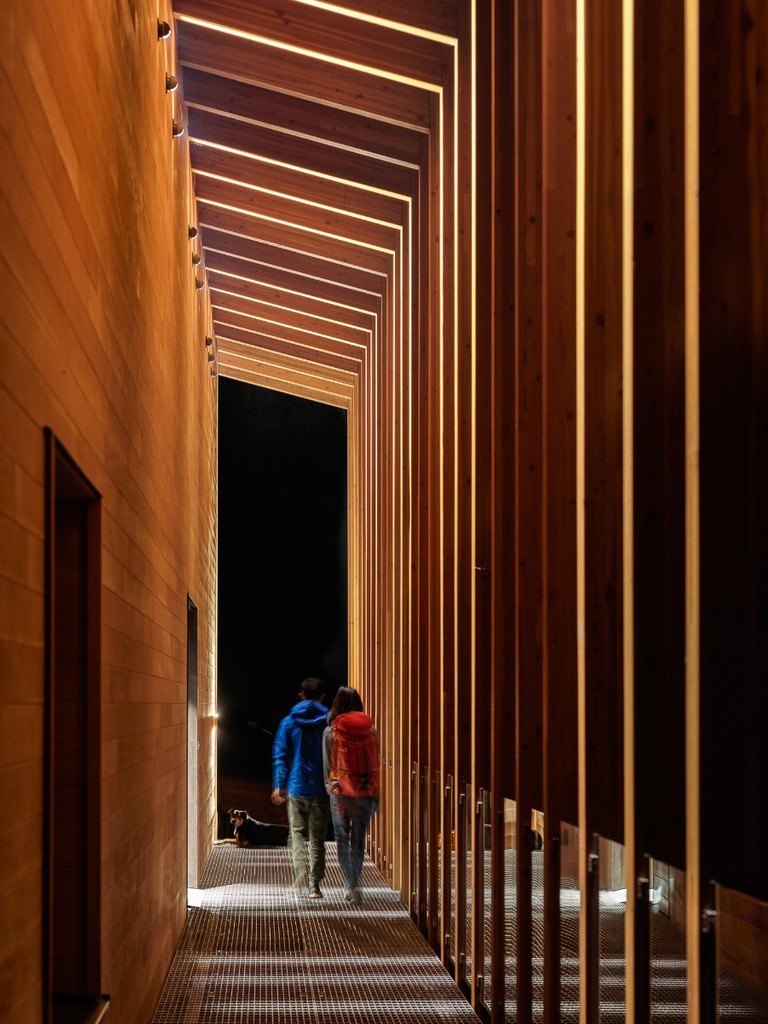
© Andrew Latreille
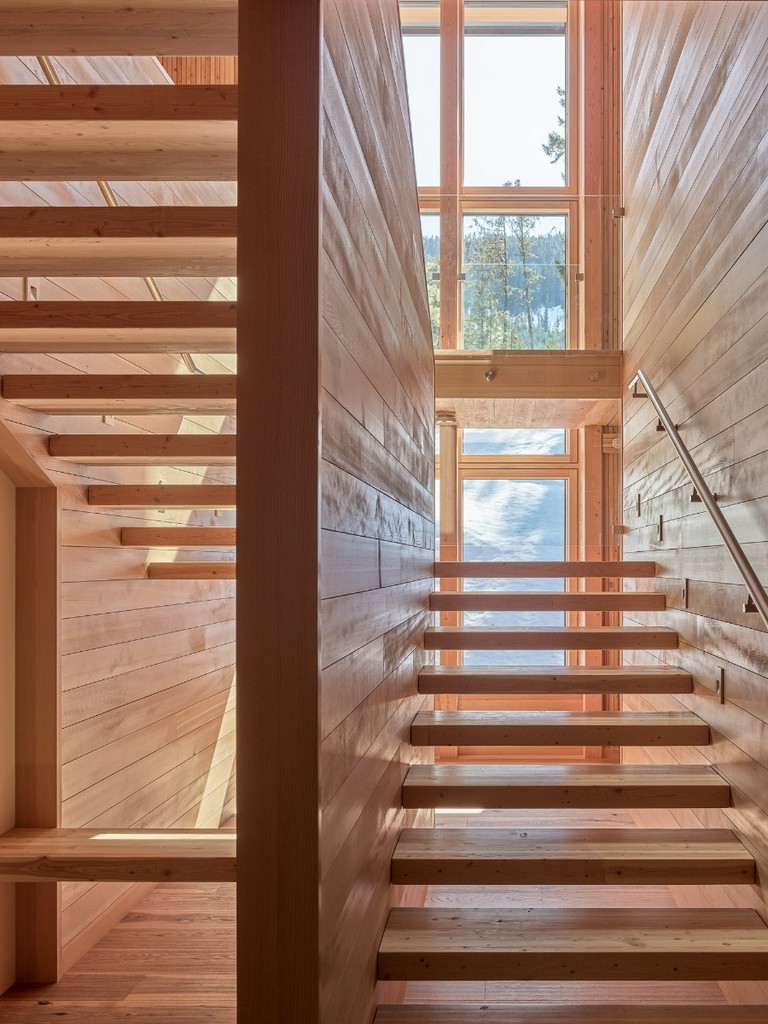
© Andrew Latreille
The main source of energy is a 32-kW photovoltaic array mounted on the southeast longitudinal facade; a wind-power system is slated for future installation. An ancillary building a bit away from the house contains battery storage and, should there be periods of no sunshine, a fuel cell.
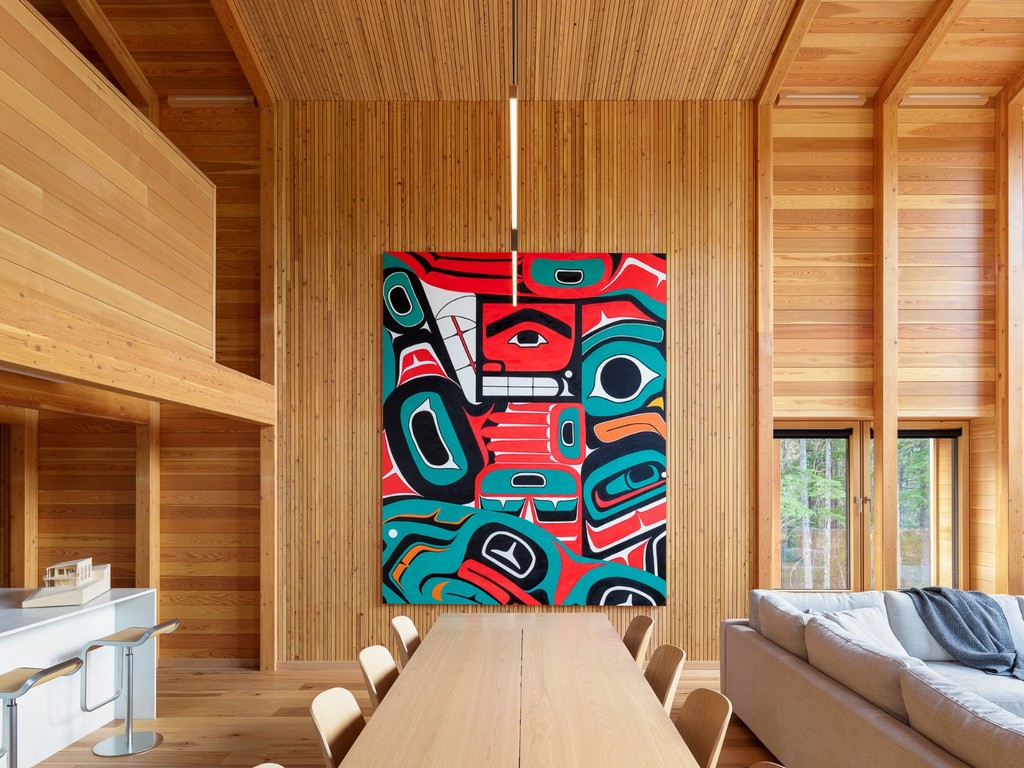
© Andrew Latreille
For the self-sufficiency concept to work, the house’s energy requirements first had to be lowered. The building was planned according to passive-energy principles, which in this particular location meant around 60 cm of insulation inside the building shell. From the inside out, the shell consists of dowelled solid-wood panels, a vapour barrier, the insulation layer between the timber cross-pieces and a second, independent wooden framework that bears the exterior covering of the house. The latter consists of the above-mentioned PV modules on the southeast facade, wooden boarding on the northeast side as well as a standing seam cover on the shed roof. On the east-facing end, the house opens onto the terrace with floor-to-ceiling glazing. Behind this, visitors enter a two-storey living room and continue into the kitchen, bathrooms and bedrooms. A sauna and storage space are located in a small annexe on the north side of the structure.

